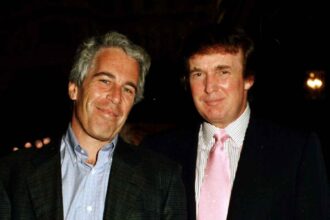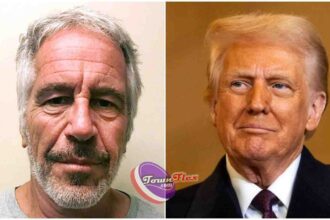- Trump demands $230 million compensation from U.S. Justice Department
- Claims stem from probes during his first term and the Biden administration
- Settlement talks involve DOJ officials who previously represented Trump
- Trump says he would donate any payout to charity
U.S. President Donald Trump is seeking a $230 million settlement from the Department of Justice (DOJ), claiming compensation for multiple investigations he faced during his first term and the Biden administration. The request, confirmed by sources to ABC News, represents one of the most unusual legal moves by a sitting president in recent U.S. history.
According to The New York Times, the proposed arrangement would require approval from senior Justice Department officials — including some who previously served as Trump’s defense lawyers or represented his close associates. Such overlap has sparked debate among legal observers over potential conflicts of interest and ethical concerns within the federal agency.
The claims were filed in 2023 and 2024 while Trump was out of office. One centers on alleged damages from the Russia election interference investigation, while the second involves special counsel Jack Smith’s classified documents case and the FBI’s 2022 search of Trump’s Mar-a-Lago estate.
Speaking in the Oval Office last week alongside Attorney General Pam Bondi, FBI Director Kash Patel, and Deputy Attorney General Todd Blanche, Trump indirectly referenced the negotiations.
“I have a lawsuit that was doing very well, and when I became president I said, ‘I’m sort of suing myself,’” Trump remarked. “It sort of looks bad, I’m suing myself, right?”
Justice Department policy requires any settlement to receive approval from the deputy or associate attorney general. However, Blanche previously represented Trump in both the classified documents and January 6 cases, while Associate Attorney General Stan Woodward served as counsel to Trump aide Walt Nauta.
Both federal prosecutions against Trump were dismissed after his reelection, following the Justice Department’s long-standing policy that bars the prosecution of a sitting president.
Addressing reporters Tuesday about the settlement reports, Trump downplayed personal gain.
“All I know is that they would owe me a lot of money, but I’m not looking for money,” he said. “I’d give it to charity or something.”
He added, “It’s interesting, because I’m the one that makes a decision, right? And you know that decision would have to go across my desk. It’s awfully strange to make a decision where I’m paying myself.”
If approved, the settlement would set a historic precedent, raising legal and ethical questions over whether a president can authorize federal compensation for cases in which he is a party.









